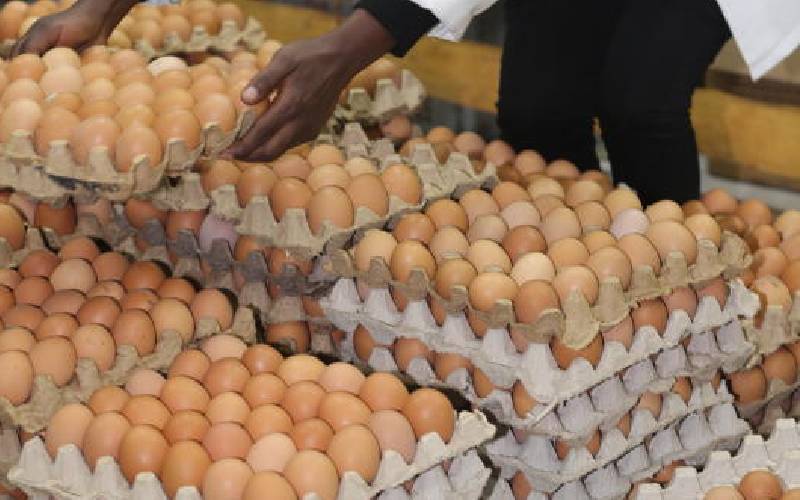
In January this year, the government banned the importation of eggs from Uganda. The move followed a prolonged outcry by Kenyan poultry farmers who complained they were being driven out of business by their counterparts across the border.
While slapping the ban, the government said it was out to protect local farmers from a deluge of cheap eggs from Uganda. The decision, therefore, was well-intentioned.
Nevertheless, it was out of tune as it went counter to the spirit of the East African Community’s common market protocol.
No wonder, Ugandan farmers are up in arms. They are urging their government to retaliate and slap a ban on certain Kenyan goods.
Their demand may be justified but as Mahatma Gadhi said, an eye for an eye leaves everyone blind. That option would be as drastic as Nairobi's.
Uganda is our leading trading partner. Last year, Kenya exported to Uganda goods worth Sh72.2 billion, according to official data. This was an increase of 12.6 per cent from Sh64.1 billion the previous year. This made Uganda Kenya’s largest export market ahead of Pakistan, the country’s leading market for its tea.
Kenya exports to Uganda include palm oil, coated flat-rolled iron, refined petroleum, salt, pharmaceuticals, plastics lid and confectionery sugar.
On the other end, Kenya imported goods valued at Sh25.9 billion from Uganda last year, a reduction of more than a third from Sh38.5 billion in 2019. This means Nairobi enjoys a trading surplus against Kampala. Kenya has the upper hand. Besides eggs, Kenya imports raw milk, concentrated milk, raw tobacco, plywood, wood fiberboard, electricity from Uganda.
Why, then are we turning into cry-babies where we seem to enjoy clear advantage?
It is understandable when a government protects the interests of its citizens as Kenya has done. Such protection, however, must be in consonance with with the international agreements that we are party to.
Moreover, protectionism is not entirely the solution. It makes farmers be inefficient, and hurts consumers who have to pay for expensive products. What the government ought to have done is to create an environment that reduces the cost of production for local producers.
The waiver of import duty on animal feeds announced by Agriculture Cabinet Secretary Peter Munya is one such good example. The move will enable farmers to access feeds at a lower cost and therefore to compete on an equal footing with their Ugandan counterparts who enjoy access to cheaper feeds.
Besides expensive animal feeds, local livestock farmers also grapple with costly labour, credit, transport, electricity, and water which drive up their cost of production.
Addressing problems that beset farmers, like Mr Munya has done, is good for farmers and our economy. Resorting to protectionist policies such as the one on eggs puts us on a collision course with our neighbours and raises doubts about our commitment to the EAC. Kenya might end up with egg on its face if it continues walking that path.
 The Standard Group Plc is a multi-media organization with investments in media
platforms spanning newspaper print
operations, television, radio broadcasting, digital and online services. The
Standard Group is recognized as a
leading multi-media house in Kenya with a key influence in matters of national
and international interest.
The Standard Group Plc is a multi-media organization with investments in media
platforms spanning newspaper print
operations, television, radio broadcasting, digital and online services. The
Standard Group is recognized as a
leading multi-media house in Kenya with a key influence in matters of national
and international interest.











